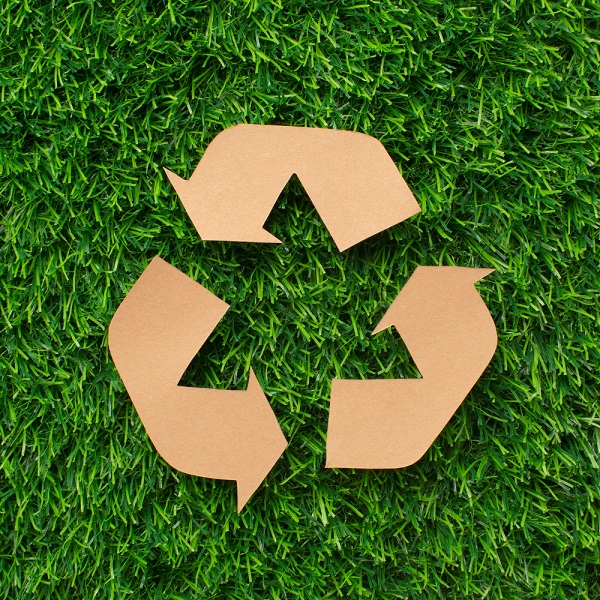 How Businesses are Innovating for a Greener Planet
How Businesses are Innovating for a Greener Planet

As environmental issues grow in urgency, businesses across various industries are stepping up to address the challenges of waste management and sustainability. The innovations being implemented aim to reduce waste, optimize resources, and create a circular economy where materials are reused, recycled, and repurposed. From advanced technologies to creative strategies, businesses are reshaping how waste is handled to contribute to a greener planet. Here's a look at some of the most effective waste solutions businesses are using to create positive environmental change.
1. Closed-Loop Recycling Systems
Closed-loop recycling is a system in which materials are reused in the production of new products, ensuring minimal waste generation. Businesses that adopt this system recycle the same material repeatedly, reducing the need for new raw materials and cutting down on energy consumption. This practice is especially prominent in industries such as beverage and packaging, where bottles, cans, and containers can be recycled and refilled instead of disposed of.
For example, Coca-Cola has embraced closed-loop systems by reusing bottles and offering incentives for customers to return empty containers. This helps reduce waste, lowers production costs, and promotes a more sustainable lifecycle for products. Closed-loop recycling reduces the reliance on virgin resources and helps preserve natural ecosystems.
2. Sustainable Packaging Solutions
One of the most visible areas of innovation in waste management is in packaging. With plastic waste causing significant environmental harm, businesses are finding sustainable alternatives to traditional packaging materials. The rise of biodegradable, compostable, and reusable packaging is an important step toward reducing waste in the commercial sector.
Companies like Unilever and Nestlé are exploring new types of packaging made from plant-based materials, such as bioplastics, or packaging that can be reused multiple times. These sustainable options reduce plastic waste and make it easier for consumers to recycle or compost materials after use. Shifting toward eco-friendly packaging also helps businesses align with the growing demand for environmentally responsible products. In line with Patrick Dovigi's vision for environmental sustainability, the shift toward sustainable packaging is a vital component of efforts to reduce global waste and environmental impact.
3. Composting and Organic Waste Management
Organic waste, such as food scraps and yard waste, represents a significant portion of landfill materials. To combat this, businesses are turning to composting and organic waste management to repurpose organic materials into valuable resources. By diverting food waste from landfills, businesses can reduce methane emissions and contribute to soil health by creating nutrient-rich compost.
Grocery stores, restaurants, and food manufacturers are leading the way in organic waste management. For example, Whole Foods and McDonald’s have partnered with composting organizations to collect food scraps and repurpose them into compost. This not only reduces the volume of organic waste in landfills but also supports sustainable agriculture practices.
4. Waste Audits and Data-Driven Waste Management
Data plays a crucial role in identifying inefficiencies in waste management processes. Businesses are increasingly using waste audits and data analytics to track the types and amounts of waste generated and develop strategies to minimize waste production. Waste audits provide detailed insights into the materials being discarded, allowing businesses to make informed decisions about how to reduce, reuse, and recycle materials.
For instance, companies like Google and Microsoft use data to track their waste generation across multiple sites, helping them implement targeted waste reduction strategies. Data-driven waste management solutions can improve operational efficiency, reduce costs, and lead to better sustainability outcomes.
5. Sustainable Waste-to-Product Innovations
Waste-to-product technology is a promising solution for turning what would otherwise be discarded materials into new, useful products. Many companies are adopting this approach to convert waste into valuable resources that can be sold or used in the production of new goods. Industries like construction, textiles, and electronics are increasingly exploring waste-to-product innovations.
For example, textile companies are turning discarded fabrics and clothing into new fabrics, reducing textile waste and creating more sustainable clothing lines. Similarly, companies in the construction industry are repurposing construction debris, such as concrete and bricks, to create new building materials. Waste-to-product solutions help divert large amounts of waste from landfills while providing businesses with new sources of raw materials.
The shift toward more sustainable waste management practices is gaining momentum across industries, with businesses embracing new technologies and strategies to reduce waste and promote a circular economy. As these solutions evolve, they will continue to play a critical role in creating a greener planet, helping businesses meet environmental goals while also driving innovation and operational efficiency. The future of waste management is bright, with businesses leading the charge for a more sustainable world.